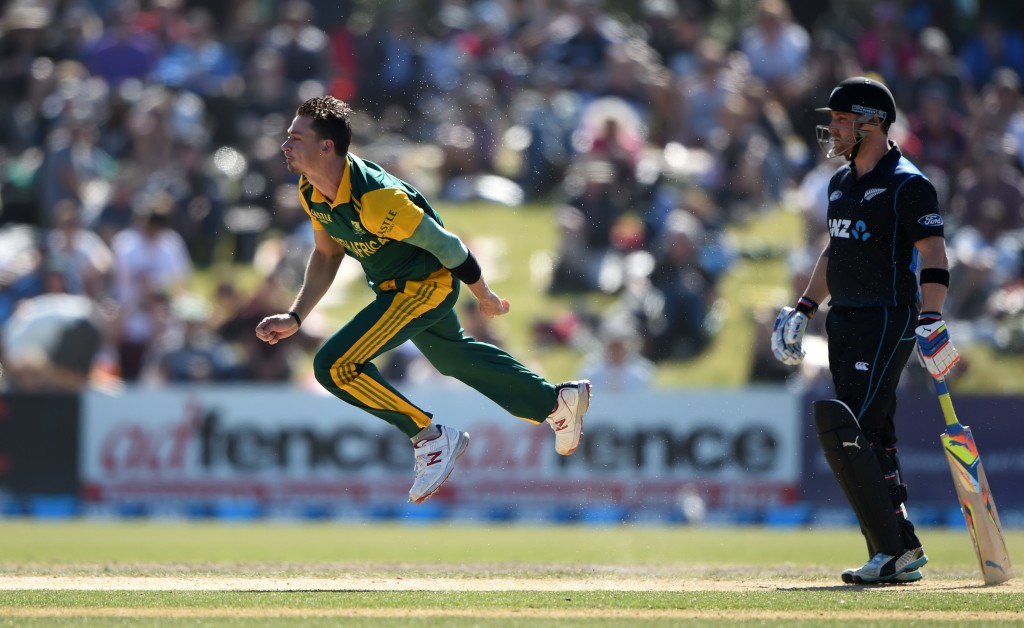Why did Dale Steyn miss the Bangladesh ODIs? Why did Brendon McCullum not travel to South Africa? Apparently it’s called ‘resting’.
The term ‘resting’ has taken various forms recently. It appears to be a collective term for when players are left out of their respective squads. There is only one plausible definition for resting. The others should be explained for what they are.
Press releases from international teams will say their players have been rested. What this has actually meant recently, ranges from ‘He’s not too keen to waste what he has left on Bangladesh’, to ‘He’s played a lot of IPL and Natwest T20 Blast’ to ‘He’s been rubbish, so he needs some time away from the set-up’ to the more genuine ‘The punishing workload has taken its toll on him’.
When I say more genuine, I mean this is the one that fits into the term ‘resting’. I’m referring to Mitchell Starc, who played every single match for Australia in 2015 up to the fourth ODI against England in September. Only Stuart Broad bowled more international overs than Starc up to that point, and a chronic ankle injury means he’s going to need surgery sooner rather than later. Rested indeed.
So consider the Australian squad that was supposed to tour Bangladesh. Starc was included, but Josh Hazlewood was rested.
Sure, it knocks the confidence of a player to hear that he’s been dropped. But 24-year-old Hazlewood knows he was dropped, and so do the public. So to use the word ‘resting’ would be disingenuous.
Hazlewood has a very promising career, but he couldn’t get his line right against England. Peter Siddle took his place in the fifth Test and performed exceptionally. Hazlewood could very well work his way back in time to face New Zealand. But he hasn’t been rested. He’s in the New South Wales Matador Cup squad which gets underway this weekend!
Jos Buttler was ‘rested’ for the last three ODIs against Australia. But a string of poor batting performances left the selectors with no choice but to leave him out. He was dropped. He has played more cricket than Hazlewood, but do batsmen really need to be rested? Fast bowlers take considerably more strain, so workload management is crucial to prolong careers.
This is where Dale Steyn comes in. ‘At this stage of my career, I’d rather be saving myself to go and participate in the major tournaments, rather than wasting the few balls I have left,’ said Steyn on the Bangladesh omission. But do you call that resting? Vernon Philander was also rested. Why? Is it because he was burnt out from all of the county cricket he was playing, or was it going to be awkward selecting him ahead of Kagiso Rabada and Kyle Abbott?
McCullum, meanwhile, has given workload management a whole new meaning. He was rested for the Black Caps’ ODI series against the Proteas, which wasn’t just a slap in the face to South Africa, but to international cricket. If he needed a break, then he shouldn’t have played in the IPL or the Natwest T20 Blast.
The line between financial gain and playing for your country is a fine one. But how does this look for the younger guys in the NZ side? They see their leader opting out of playing for his country, while he’s more than happy to earn millions playing in T20 tournaments across the world? To be fair, McCullum has been ever-present in the Test set-up and is six matches away from becoming the first ever cricketer to play 100 Tests in a row. However, it was one of the reasons that used to alienate Kevin Pietersen from the rest of his English teammates.
‘Resting’ has become a lazy term to use for players who have been left out of international sides. Whether it is due to poor form or workload management, it needs to be explained and justified, and to hold players and management accountable for the reasons for doing so.







